Episodes
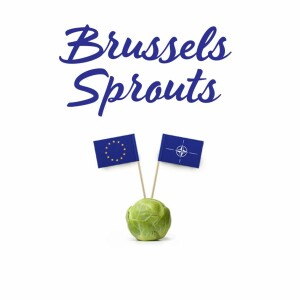
Friday Sep 09, 2022
Friday Sep 09, 2022
What do the war in Ukraine and prospects of E.U. enlargement mean for the Balkans? Damir Marusic and Majda Ruge join Andrea Kendall-Taylor and Nick Lokker to discuss how the shifting dynamics across the continent could impact the region’s politics.
Damir Marusic is a resident senior fellow with the Atlantic Council’s Europe Center. He works principally on the Council’s Balkans Forward Initiative, an effort working to foster a democratic, secure, and prosperous Western Balkans firmly integrated into the transatlantic community.
Majda Ruge is a senior policy fellow with the Wider Europe program at the European Council on Foreign Relations, based in Berlin. Before joining ECFR, she spent three years as a fellow at the Foreign Policy Institute/SAIS at Johns Hopkins University.
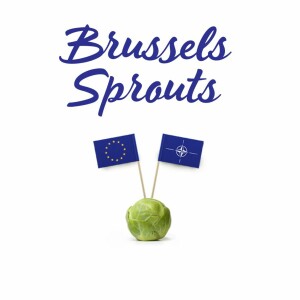
Friday Sep 02, 2022
Friday Sep 02, 2022
During recent weeks and months, German Chancellor Olaf Scholz has repeatedly been in the spotlight, drawing both praise and criticism from observers in Germany and abroad. On the one hand, he has received positive attention for his efforts to promote an ambitious agenda that would transform both Germany and the European Union, attempting to meet the pivotal current moment sparked by Russia’s invasion of Ukraine. On the other hand, Scholz has encountered significant challenges in executing on this political agenda, facing a worsening energy crisis, a fractious coalition government, and a series of personal scandals. Jana Puglierin and Sam Denney join Andrea Kendall-Taylor and Jim Townsend to discuss Scholz’s recent speech in Prague, and the shifting dynamics within the European Union that could impact the future of the war in Ukraine.
Jana Puglierin is the head of the Berlin office and a Senior Policy Fellow at the European Council on Foreign Relations. Her work focuses on German and European foreign, security, and defense policy, as well as Germany’s role in Europe and transatlantic relations.
Sam Denney is a German Chancellor Fellow of the Alexander von Humboldt Stiftung. He specializes in U.S. foreign policy, transatlantic relations, German domestic and foreign policy, and threats to democracy in Europe.
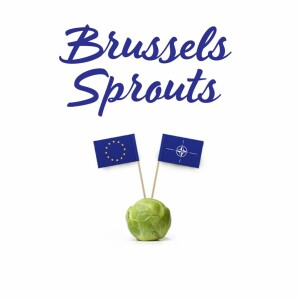
Monday Aug 22, 2022
Monday Aug 22, 2022
How does the crisis provoked by Nancy Pelosi’s recent trip to Taiwan illustrate the broader state of U.S.-China relations?Jude Blanchette and Zack Cooper join Andrea Kendall-Taylor and Jim Townsend to discuss the likely trajectory of the crisis and its broader implications for the transatlantic community.
Jude Blanchette holds the Freeman Chair in China Studies at the Center for Strategic and International Studies. Previously, he was engagement director at The Conference Board’s China Center for Economics and Business in Beijing, where he researched China’s political environment with a focus on the workings of the Communist Party of China and its impact on foreign companies and investors.
Zack Cooper is a senior fellow at the American Enterprise Institute, where he studies U.S. strategy in Asia, including alliance dynamics and U.S.-China competition. He also teaches at Princeton University, co-directs the Alliance for Securing Democracy, and cohosts the “Net Assessment” podcast.
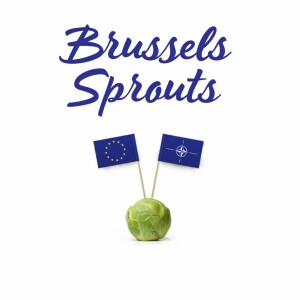
Thursday Aug 11, 2022
Thursday Aug 11, 2022
Has the war in Ukraine reached a critical turning point? Mike Kofman and Jeff Edmonds join Andrea Kendall-Taylor and Jim Townsend to discuss the evolution of the military situation and what we might expect from a forthcoming Ukrainian counteroffensive.
Mike Kofman is the Research Program Director in the Russia Studies Program at CNA as well as an Adjunct Senior Fellow at CNAS. His research focuses on Russia and the former Soviet Union, specializing in Russian armed forces, military thought, capabilities, and strategy.
Jeff Edmonds is a Research Scientist with CNA’s Russia Studies Program and an Adjunct Senior Fellow at CNAS. His research focuses on the Russian military, foreign policy, Russian threat perceptions, and Russian information and cyber operations.
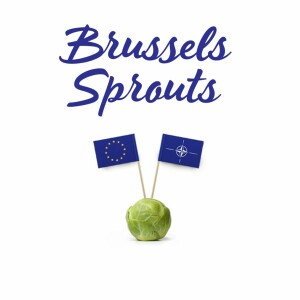
Friday Aug 05, 2022
Friday Aug 05, 2022
What do the recent upheavals in European politics mean for the future of transatlantic cooperation? Cathryn Clüver Ashbrook and Max Bergmann join Andrea Kendall-Taylor and Jim Townsend to discuss the path ahead for Europe.
Cathryn Clüver Ashbrook serves as executive vice president at the Bertelsmann Foundation. Her prior positions include director and CEO of the German Council on Foreign Relations as well as executive director of the Future of Diplomacy Project at the Harvard Kennedy School.
Max Bergmann is the director of the Europe Program at the Center for Strategic and International Studies. Prior to joining CSIS, he was a senior fellow at the Center for American Progress, where he focused on Europe, Russia, and U.S. security cooperation.
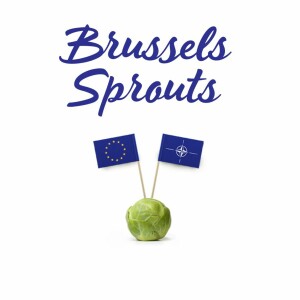
Monday Jul 25, 2022
Monday Jul 25, 2022
What have been the latest key developments in EU-China relations? Noah Barkin and Francesca Ghiretti join Carisa Nietsche and Jim Townsend to discuss milestones in the relationship and its prospects going forward.
Noah Barkin is a Managing Editor with Rhodium Group's China practice and a Senior Visiting Fellow in the Asia Program at the German Marshall Fund.
Francesca Ghiretti is an Analyst at MERICS, where she focuses on EU-China relations with an emphasis on economic security, China's global investments, China's footprint in Southern Europe, and UK-China relations.

Friday Jul 01, 2022
Friday Jul 01, 2022
What are the most important takeaways from this week’s NATO summit in Madrid? Ivo Daalder and Doug Lute join Andrea Kendall-Taylor and Jim Townsend to discuss how the alliance is adapting to meet the challenges of a new era
Ivo Daalder is president of the Chicago Council on Global Affairs. He served as the U.S. ambassador to NATO from 2009 to 2013.
Doug Lute served as the United States Ambassador to NATO from 2013 to 2017. A career Army officer, he retired from active duty in 2010 as a lieutenant general after 35 years of service.
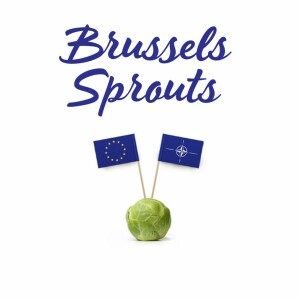
Friday Jun 24, 2022
Friday Jun 24, 2022
During the CNAS 2022 National Security Conference, Julianne Smith, U.S. Ambassador to NATO, joined Andrea Kendall-Taylor and Jim Townsend in conversation about Finland and Sweden’s accession to NATO following Russia’s invasion of Ukraine. Then Andrea and Jim were joined by Steven Erlanger and David Sanger of The New York Times to continue the conversation.
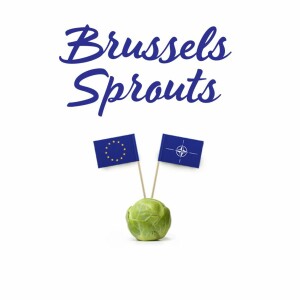
Friday Jun 10, 2022
Friday Jun 10, 2022
As the war between Russia and Ukraine drags on with little progress toward a resolution, fractures are beginning to appear in the European response. While the European Union successfully came together to take swift and decisive action during the early stages of the conflict, unity has been harder to come by in recent weeks, with differing perceptions and attitudes leading to more frequent disagreements among member states. There has been particularly harsh criticism directed against Germany and France, which some have accused of taking an overly conciliatory approach toward Russia, pointing to evidence such as German hesitation to deliver weapons to Ukraine and French statements calling for the West not to “humiliate” Russia. As Berlin and Paris receive increasing pushback from other member states who advocate for a bolder policy of unreserved support for Ukraine, the prospects for continued unity appear much less certain going forward. Pierre Morcos and Jeremy Shapiro join Jim Townsend and Nick Lokker to make sense of these differing European perspectives on the Russia-Ukraine war.
Pierre Morcos is a visiting fellow in the Europe, Russia, and Eurasia Program at the Center for Strategic and International Studies as well as a career diplomat with the French Foreign Service.
Jeremy Shapiro is the research director of the European Council on Foreign Relations, where he focuses on U.S. foreign policy and transatlantic relations.
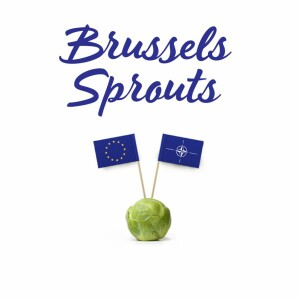
Friday May 20, 2022
Friday May 20, 2022
On May 15 and 16, the United States and European Union hosted the second Trade and Technology Council Meeting in Paris-Saclay, France. Since the inaugural TTC meeting, the TTC has emerged as an important venue for transatlantic coordination on export controls directed against Russia, providing a window for further transatlantic cooperation on technology policy. Capitalizing on this momentum, the joint statement from this meeting highlights shared initiatives the working groups have been advancing in the past months and plan to work on moving forward. Tyson Barker and Fran Burwell join Andrea Kendall-Taylor and Carisa Nietsche to discuss takeaways from the TTC meeting as well as opportunities for transatlantic cooperation in technology policy.
Tyson Barker is the head of the Technology and Global Affairs at the German Council on Foreign Relations, or DGAP. He previously worked at Aspen Germany where, as deputy executive director and fellow, he was responsible for the institute’s digital and transatlantic programs.
Frances G. Burwell is a distinguished fellow at the Atlantic Council and a senior director at McLarty Associates. Her work focuses on the European Union and U.S.–EU relations as well as a range of transatlantic economic, political, and defense issues.


